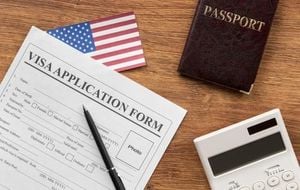Canada is set to introduce a variety of financial assistance programs aimed at helping its residents deal with the increasing cost of living, particularly through the anticipated Canada $628 Grocery Rebate for 2025. Announced by the Canada Revenue Agency (CRA), this rebate is intended for low-income Canadians who are struggling to cope with rising grocery prices.
The $628 Grocery Rebate program was initially launched as part of 2023’s financial budget, responding to the significant inflation rates impacting everyday expenses across the country. The one-time payment aims to provide immediate financial support to eligible individuals and families, easing the burden of grocery costs. The introduction of this program was part of the government’s strategy to improve the economic circumstances of struggling households. Given the persistent inflation, many Canadians are still awaiting confirmation of the next installment for 2025.
Eligibility for the $628 Grocery Rebate is contingent upon several criteria set by the government. To qualify, applicants must be permanent residents of Canada, at least 19 years old, and have filed taxes for the prior financial year. Notably, only those individuals with incomes below $32,000 qualify; for families with multiple members, this cap rises to $38,000. The amounts received under the grocery rebate vary based on each household's tax information, with single individuals receiving at least $234 and couples with children receiving the maximum of $628.
According to reports from the CRA, individuals who qualify will automatically receive these payments, making the process streamlined and efficient for those who meet the requirements. This automatic eligibility ensures timely support for those most financially vulnerable. The appeal of the rebate extends beyond just financial relief; it is also seen as a potential booster for local economies, as recipients are more likely to spend the funds on groceries and everyday necessities.
The payment date for the next round of the grocery rebate remains to be officially announced, with the last payment issued on July 5, 2023. The lack of clarity about upcoming payments has left many citizens concerned yet hopeful, as they share their stories about the difference this financial assistance made to their budgets last year.
City resident John Smith expressed his appreciation for the program, stating, “Without this rebate, I would find it challenging to afford groceries for my family.” Such personal accounts reflect the broader necessity of government intervention during tough economic times.
Meanwhile, as part of the wider 2025 financial aid initiative, some provinces are considering stimulus checks as additional support for residents facing economic hardship. New Mexico, among other states, announced plans to provide $1,000 checks, aimed at families struggling with rising costs. These stimulus payments are being viewed as supplementary support, building upon existing programs like Canada's grocery rebate.
Much like Canada’s grocery rebate, the $1,000 stimulus checks are aimed at individuals who fall below certain income thresholds and must comply with eligibility criteria. The payments could help families manage their monthly expenses, offering immediate relief and fostering financial stability.
Eligibility for the stimulus checks is similarly based on income, with the IRS specifying criteria. Those eligible must not be dependents on another person's tax return and must have filed tax returns for the previous year. Unlike the grocery rebate program, the mechanism for delivering these checks includes direct deposits for those with registered bank accounts, as well as options for paper checks and prepaid debit cards, ensuring accessibility for different demographic needs.
Statements from government officials indicate hopes for the stimulus checks to be released by spring 2025, though details are still pending. Governor Grisham of New Mexico highlighted these initiatives as necessary steps to support the vulnerable, remarking, "These payment plans are structured to aid our communities struggling under the weight of economic inflation.”
While the benefit programs are being developed, residents are advised to stay informed about application processes and potential eligibility updates through official government websites. Regular updates are expected closer to the program launch dates, helping applicants prepare correctly to avail of these programs.
With the impending financial relief steps like the Canada $628 Grocery Rebate and proposed $1,000 stimulus checks, many citizens are left with renewed hope. Nevertheless, as these programs begin to take shape, many Canadians are left wondering when those benefits will be available again. For those waiting for confirmation, the best course of action remains to check reliable news sources and government announcements.
By addressing the pressing need for financial aid amid the current economic climate, these governmental programs hope to alleviate some of the burdens faced by households across the nation. Citizens are encouraged to remain vigilant and engaged as more information about these initiatives becomes available throughout the year.



